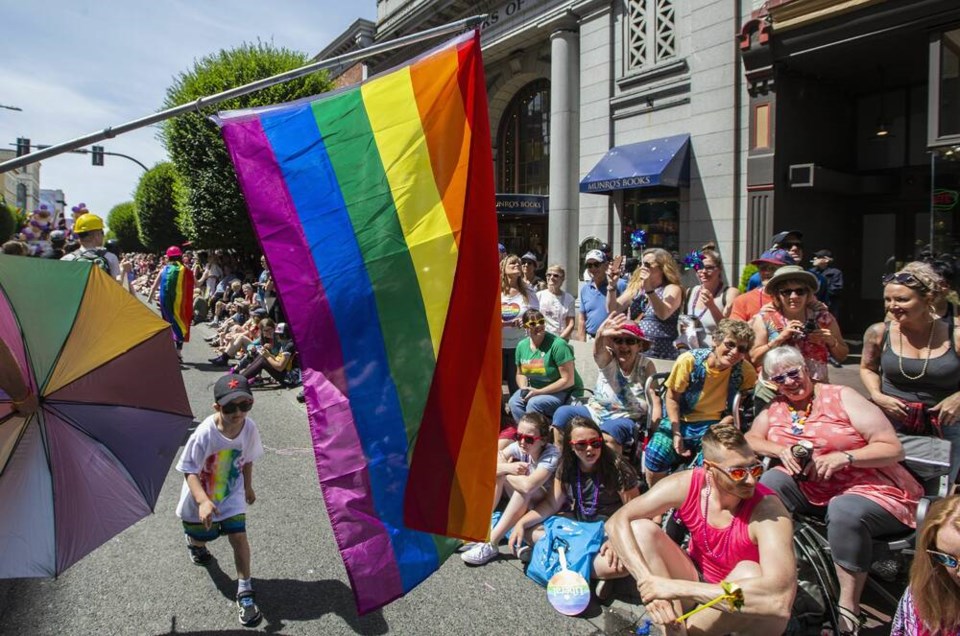In Victoria, what began as a small, grassroots civil rights movement fighting for recognition has evolved into a city-wide celebration attracting thousands of people.
The Pride Picnic in 1991 is considered by many to be the start of Pride events in the city, though there are records and reports of an art show and dance in 1982 and a parade in 1989.
Colin Craig, who was a fine-dining server at the time, helped to plan the 1991 event, which was held in Beacon Hill Park.
“I would say likely that was the beginning of Pride, and the picnic was the first Pride festival,” Craig said. “To begin with you couldn’t get anyone to sponsor you. Even the Times Colonist wouldn’t print anything on us.”
In those early days, Craig grilled hot dogs on his hibachi and sold them by donation. He picked up a cooler of the popular orange pop drink from McDonald’s and helped put on drag races with clothes from the Salvation Army. About 200 people participated.
At the time, the community was still dealing with the impact of the ongoing HIV/AIDS crisis, Craig said.
“It was very unusual because you were in your 20s and 30s and losing your friends, who were the same age as you,” he said. “You were just numb from going to funerals.”
Thirty-one years later, the festival has changed, but Craig said the civil rights at the core of the event must be maintained.
“It was a fight for equality and there’s still a fight to do today,” he said. “For me, when it comes to today’s Pride, there’s a long way to go before our fellow gays and lesbians and trans people are free to be who they are.”
In 1994, the Times Colonist published an article on the first Gay Pride Parade, as it was then known.
Reporter Richard Watts wrote that roughly 200 people gathered at the legislature grounds on a sunny Saturday in July. The event included a moment of silence for those who couldn’t attend, he reported, either from fear or because they had died from AIDS.
Judy Lightwater, a lesbian activist and retired charity consultant, said she’s attended every Pride parade since.
“I think as we celebrate Pride we really need to be aware of the fact that there are many people who would like to roll these rights right back,” Lightwater said. “It’s not like the work is done. And some days it feels like we’re starting all over again.”
Victoria city council proclaimed a Pride Week in 2000 — 18 years after a bid for a Pride Week proclamation to affirm “the worthiness of gay people as human beings” was rejected by the city. Peter Pollen, the mayor in 1982, reportedly said it would be “inappropriate for the city to proclaim gay pride week.”
In 2005, the Victoria Pride Society was created, and since then, both the festival and parade have grown. This year, the parade is expected to draw 40,000 spectators and participants to downtown Victoria.
“When I think back on all the pride parades I’ve walked in, I’ve always felt like we have lots of days that we get to be safe here in Victoria, but this is a day when we really are celebrated,” Lightwater said.
“Safe and celebrated is what we want for everybody.”




